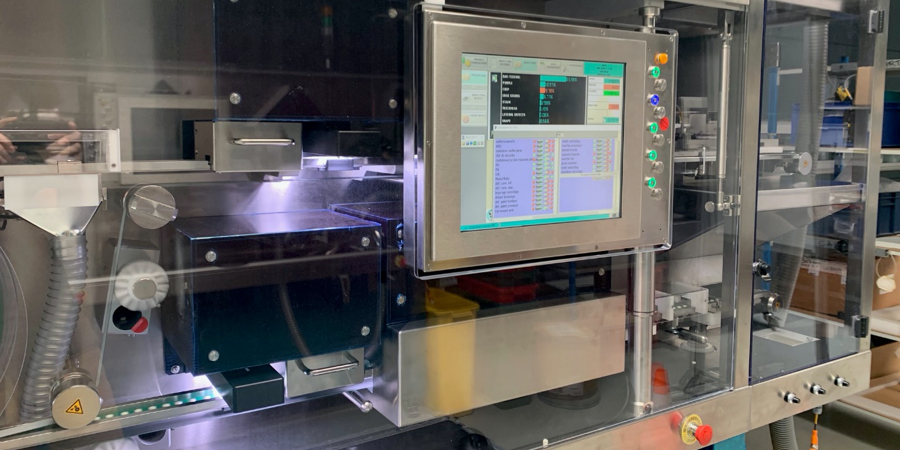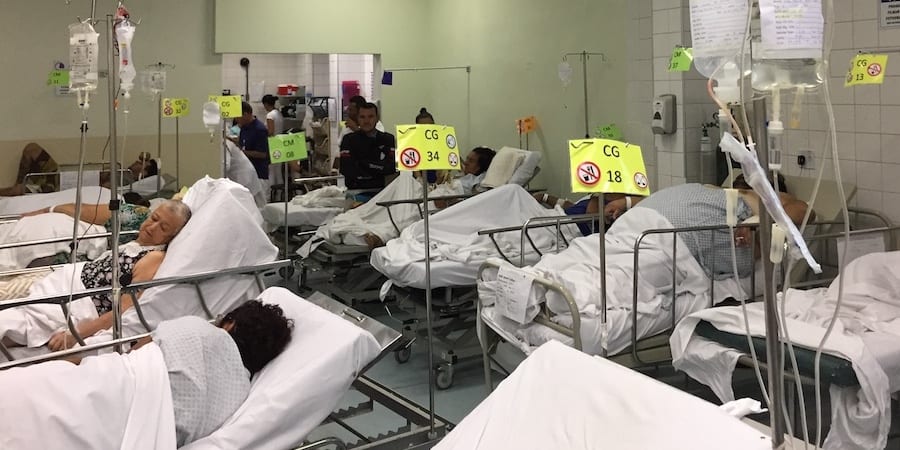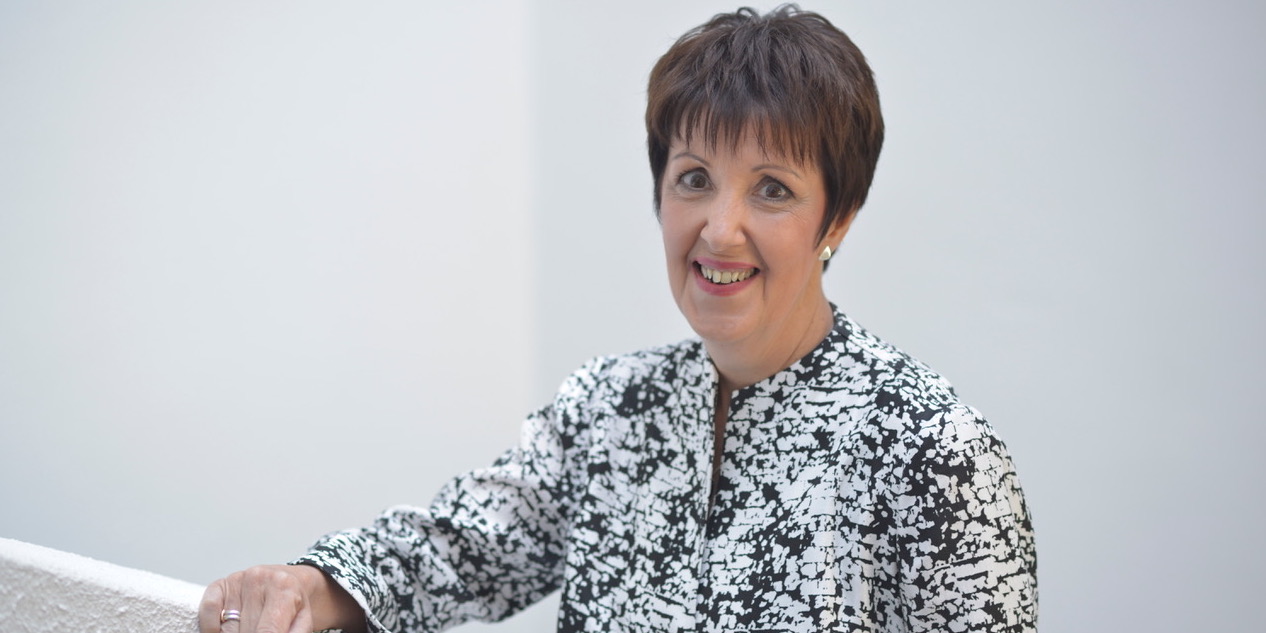
Facing the emergency
NOTES FROM THE (VIRTUAL) GEMBA – In this new series - one new article every week during the Covid-19 crisis - the author asks companies how they are reacting to this health emergency. First up, Proditec.
Words: Catherine Chabiron, lean author and member of Institut Lean France
March 2020, we’re stunned. The entire French economy grinds to a halt following the lockdown imposed by the government to try and slow down the progress of the Coronavirus pandemic. Within one week, 75% of industry has shut down.
Christophe Riboulet, CEO of Proditec, has nevertheless managed to both protect his employees and keep his facilities up and running. I had visited him back in 2017 for a Notes from the Gemba feature, and I am curious to hear how lean can possibly help him in this unprecedented situation.
As a reminder, Proditec manufactures automated inspection machines that check the quality of pharmaceutical tablets. They also maintain a niche activity in national money-coining control. Ninety-five percent of Proditec sales are exports, to 40 different countries, and their main pharmaceutical competitors are in Japan and South Korea (countries where a full lockdown has not been imposed). Christophe says, “We have to continue shipping, all the more since we cater for the health business, which is particularly active at the moment.”
My virtual gemba is based on a videoconference, so no genchi genbutsu today, no going and seeing for myself. There is, however, plenty to be learned that way. Let’s first take a step back with Christophe, to try and understand what Proditec was up to when the crisis started.
BEING SERIOUS ON SAFETY AND QUALITY DEFINITELY HELPS
Ever since 2008 and the financial crisis that led Proditec to switch to the pharmaceutical business, Lean Thinking has helped clarify the intent behind everyone’s activities. Problems abound, like in any company, but Proditec has made it clear in which order they should be tackled:
- Ensure safety.
- Protect customers.
- Comply with contracted dates.
- Reduce lead-time.
- Reduce costs.
Accidents are not commonplace at Proditec, but the team still analyzes near-accidents once or twice per week (and this may also explain why they are a rare occurrence). They also use the Friday breakfast time with all team members (50 people work at Proditec) to extensively communicate challenges, directions, problems and solutions, and of course, the latest analysis of a near-accident.
Christophe has always worked hard on quality issues and showing people how they can learn from them. Proditec is a small business operating in a highly competitive market and they need to learn fast to be able to remain successful. They are currently trying to double the speed of pill checking (machines today can inspect 300,000 pills and tablets per hour, and their goal is to reach 600,000). Knowing he also has to protect customers (the second item in his priority checklist), Christophe recently re-discovered the Taguchi loss functions.

You can construe quality as a contractual notion: as long as you are within the specified tolerances agreed with customers, you’re good. The customer, you believe, will only sustain a cost when the product is out of tolerances. Taguchi argued, however, that the customer is buying the OK point and “loss” in value will progressively increase as variation increases from the intended condition.
Christophe explains that, for example, having pills neatly set apart from each other on the conveyor belt is not enough; you also need to try and maintain the intended distance. Every instance where this is not the case is an opportunity to learn.
Such in-depths reflections greatly helped Proditec and Christophe when the Coronavirus crisis first began.
ANTICIPATE THE PANDEMIC AND THE LOCKDOWN
Christophe had a first hint that a storm was brewing when his daughter left for Singapore in February. Worried by the rumors he was hearing of an Asian pandemic, he checked how the Singaporean government was tackling the problem and found their approach of tracking and tackling each case reassuring. They were approaching the “quality” issue in a very lean fashion, analyzing each “defect” occurrence in a systematic way, isolating and treating each “faulty specimen”, massively testing all the other ones, and this case-by-case approach allowed them to pursue “production”. Forgive the seemingly cold-hearted description, as I compare people to products; it is just meant to help me describe the one-piece-flow approach employed in Singapore. Pursuing his investigation, Christophe observed that what was shaping up in Europe, instead, was traditional batching: unable to protect and test on a case-by-case basis, European governments were deciding, one after the other, to confine everyone at home. In other words, they stopped “production” and consider all “products” as suspicious – with the associated sense of guilt we all feel as potential carriers. All this despite the fact that the worst current estimates assess the “defect rate” at around 0.5% of the total population.
Christophe immediately knew he had to start preparing Proditec for what was coming. Seeing a crisis coming and being able to “read” it through TPS spectacles can give a company a small edge that will make the difference between irrational and rational behaviors. By February 28, Proditec started to treat the Coronavirus pandemic like a near-accident and managed it as such: first things first, what was needed to protect everyone? (Point 1 on the checklist: Ensure safety.)
This is the sort of situation in which Lean Thinking comes in handy. During our video call, Christophe mentions The Lean Strategy and tells me how, in a lean crisis, the common 4D approach (Decide – Define – Drive – Deal or “I think out the strategy, you execute it”) doesn’t work: “You have no time to Define and Decide. In addition, things are moving so quickly that there is a huge risk of making the wrong decisions.”

Proditec has a lot of experience using the alternative 4F approach (Find – Face – Frame – Form), Christophe explains. “Find and Face is sometimes a painful process as the problem you need to work on is not necessarily what you, the boss, had in mind,” he tells me. “The whole point of the 4F is not to separate strategy from execution (I think, you execute), but to find and face problems (accept), then frame and form solutions together (commit).”
By the end of February, Proditec had a 4F approach up and running to prepare for different levels of crisis (sanitizing -> manage increasing absenteeism -> manage lockdown). From the start, they were targeting business continuity and the protection of each individual. A solid supply chain requires a continuous engagement with suppliers and customers: the team, therefore, quickly identified both critical suppliers and the short- to medium-term commitments they had to deliver to their customers, so as to secure them. Because information in a fast-changing context is absolutely crucial, they also tackled fake news and set up decision committees every Tuesday and Thursday to check and confirm what was at risk or not and define what to do next.
By March 16, when the lockdown was announced, Proditec switched over to remote working and took measures to protect the production and testing environments (cleaning door handles, offices, machines, etc, and enforcing social distancing measures for those who are still in the office). All of the teams’ meetings and feedback sessions were set up remotely as well. Business did not stop.

NEW PROBLEMS REVEALED
Does seeing a crisis coming makes it easier to deal with it once it hits? Christophe sighs: “In this case, not really, because the situation is extremely new. Some of our employees have to home-school young children and can’t work because of that. And the fear of infection is on everyone’s mind.”
The good news is that Proditec does not have to switch to a more severe form of crisis management. All the measures taken have turned out to be strong enough to support the new work environment. Proditec’s pulled flows continue to reveal the problems they need to face. Some problems are new, such as the need for increased flexibility (no one was left to deal with spare parts, for example, and a support engineer was trained over half a day to prepare quotes for customers). Here again, the fact that Proditec, through the 4F approach, has been able to develop a strong chain of management support with team leaders helps a lot. True, some of the management chains were broken because of a missing link and they had to be adjusted, but throughout the crisis team leaders are staying true to their mission. They are not working from home: duly protected through strict sanitation routines inspired by Asian best practices, they are still going to the office, determined to continue to play their central role of providing feedback and support, listening and helping front-line staff. Along the way, new leaders are emerging, too!
Beyond the need of a strong management help chain and the confirmation that resource flexibility and multi-skilling once again prove crucial when one has to quickly adjust to change, Christophe sees massive opportunities to learn in the current situation. Again, no need to reinvent the wheel: Proditec has devised a product development tool to master technologies or close knowledge gaps, based on the PDCA cycle (knowledge gap to close, hypotheses, results, learning and sharing), which it is going to use extensively as it deals with the unknowns stemming from the Covid-19 pandemic.
We don’t see the way out of this situation yet, but it is not unimaginable that massive home testing might be the solution, so that we can move from a batching approach (and the resulting frozen economy) to a case-by-case approach to dealing with this virus.
“The 2008 financial crisis forced us to rethink many of our assumptions,” Christophe says. “While preparing for our return to normal life, we need to find ways to learn from the 2020 crisis, as well.”
THE AUTHOR

Read more


FEATURE – The importance of leveraging early successes to drive engagement to lean is often talked about. The story of this Brazilian hospital confirms this is the way to go.


COLUMN – To develop a successful product or service an organization has to effectively manage the tension between the experts' specialization and the entrepreneur's flexible approach to innovation.


INTERVIEW – Rose Keanly discusses the role of lean in a strategic business transformation in the financial services sector and the dos and don’ts of bringing lean to a large organization.


FEATURE – What role does packaging play when it comes to marketing a product? The author discusses “lean packaging” and shares the example of an Italian toilet paper maker.

